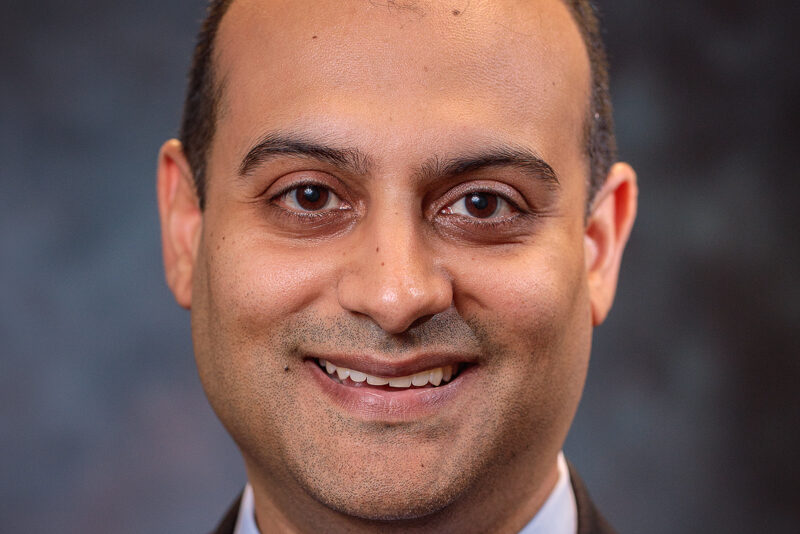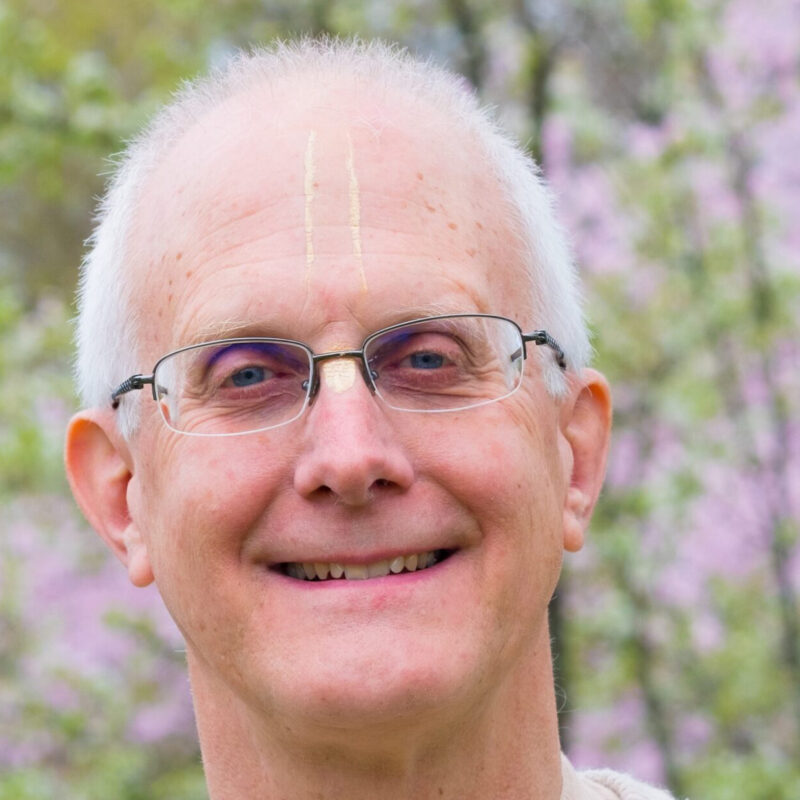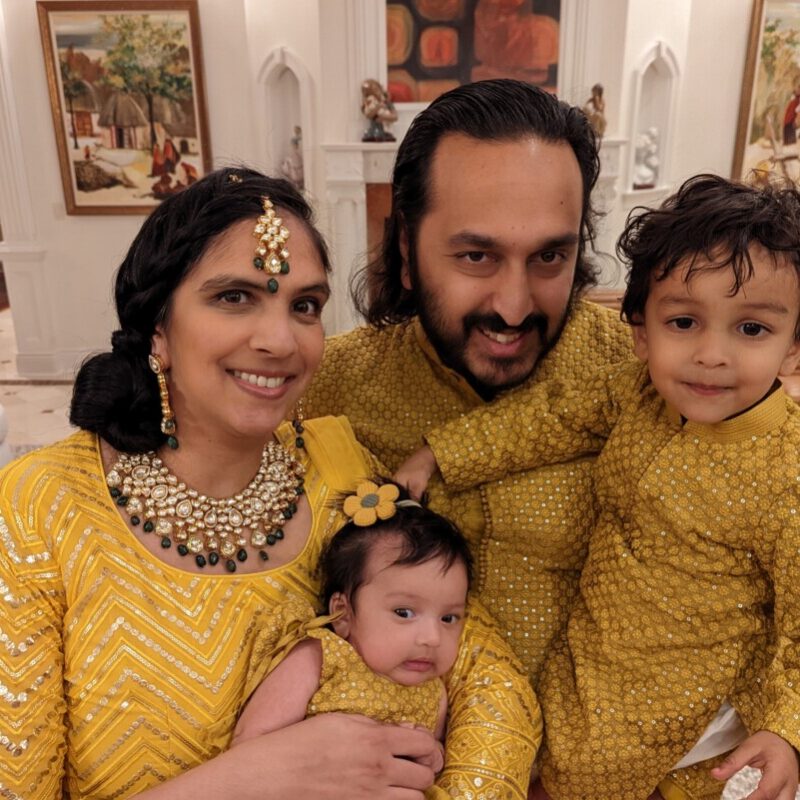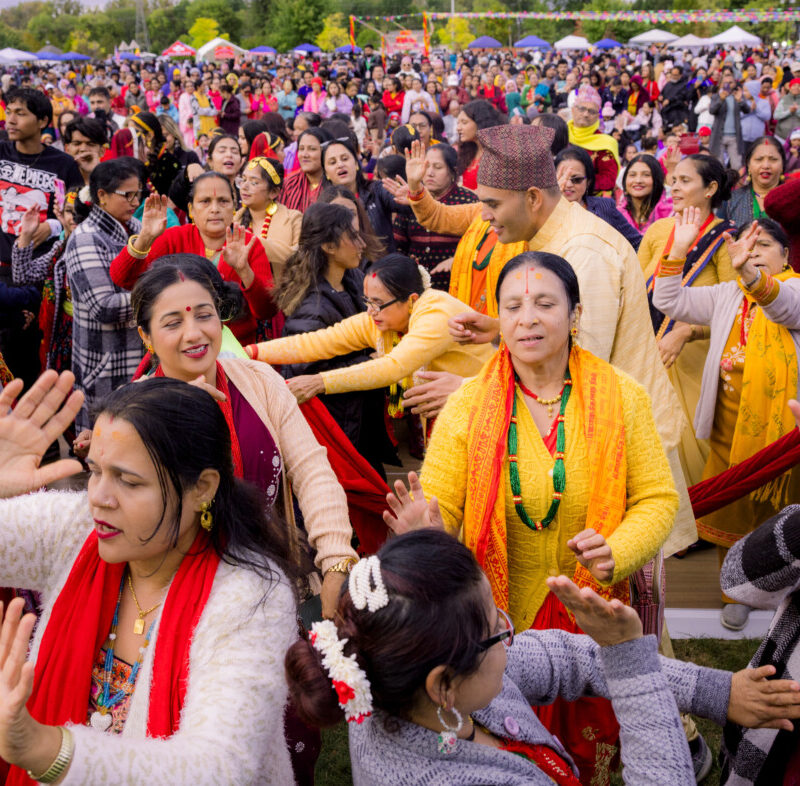
The supreme source of creation, according to Hindu texts, naturally comprises all of life’s dimensions, and therefore includes not only a masculine aspect, but a feminine one as well.
Known as Shakti, or the creative and energetic force of the Divine, the latter provides a spiritual balance to the former, and is thus revered by adherents through various goddess forms, who are particularly recognized during certain festivals of the year — a special one being Navaratri.
A nine-night observance that honors the role the loving, compassionate, and gentle, yet sometimes fierce, feminine energy plays in our lives, Navaratri is famously topped off with a 10th-day celebration of Vijayadashami (commemorating the victory of Goddess Durga over the demon Mahishasura).
Of course, with Hinduism being the incredibly diverse tradition it is, there are many who choose instead to spend the day meditating on a different victory, that of Rama over the demon-king Ravana. While, in this case, it isn’t a goddess directly who destroys the unscrupulous enemy, it is one who inspires such destruction, as it’s the immeasurable power of Sita’s love and devotion that fuels Rama’s drive to vanquish her dishonorable captor.
So, regardless of which pastime one chooses to focus on, the unrelenting light of Shakti dispelling the darkness of corruption is an ultimate lesson every celebration endeavors to appreciate. And, depending on the community, each can look a little different.
The following is an interview with Samir Kalra, a second-generation Hindu American whose father is Punjabi and mother is Pahari, and who now serves as Managing Director for Policy and Programs for the Hindu American Foundation [HAF]. Having participated in the festivities his whole life, he shares with us his unique perspective: how he celebrated, how he celebrates now, how his outlook and appreciation have evolved over the years, and more.
What are your earliest memories of Navaratri and or Dussehra? What about the holiday period initially resonated with you?
Growing up, I don’t have as many memories of celebrating Navaratri. It wasn’t as big in my family. But I do have some wonderful memories of Dussehra. My mother is Pahari, she’s from the hills originally, and Dussehra is huge in that area, so we always had a big celebration.
We had a local Hindu Mandir [temple] close to us where we would go for Dussehra and Diwali, and I fondly remember going and seeing the Ravana Dhana, or the burning of the effigy of Ravana, which symbolizes, of course, the victory of good over evil, and when Sri Rama killed Ravana before he returned back to Ayodhya. That really resonated with me, the whole story behind that, and the story of Sri Rama throughout The Ramayana — in particular, that moment when he killed Ravana.
Just seeing that playing out at the temple was something that I still remember to this day, and has really shaped how I view conflict. How I view this idea of conquering evil and what it takes to achieve that. So that is one of the big memories I have of Dussehra — always celebrated in quite a big manner with my family.
Can you describe, in detail, how you observe the festival time today? What, specifically, makes your community’s form of celebration unique to others?
I think it’s evolved over the years. My wife is Gujarati, so I enjoy a lot of celebrations around Navaratri that are huge in Gujarat, in particular.
We really enjoy going to garba and dandiya [traditional folk dances] events. Especially seeing my two young daughters participate has been really fun for me. And not just the garba or dandiya itself, but seeing them participate in the arati [prayer offered using a lit lamp or candle] that happens there, as well as the devotional aspect of it.
Obviously, we’re living in modern-day America. But seeing these traditions continue and being able to pass them down to my girls — especially Navaratri, with it representing the Feminine Divine, and then having them really enjoying the holiday and celebrating it with great excitement and fervor — has been very meaningful for me.
So how I participate today is really through my family and through my children. That, to me, is the most significant part of celebrating Navaratri and Dussehra. Having my kids witness that Ravana Dahan like I did as a kid is really meaningful and I look forward to that.
How has your appreciation for the celebration evolved as you’ve gotten older? What about it, now, resonates with you the most?
What I would say is that with Navaratri, in particular, the way it’s evolved, is since having daughters, I really appreciate the idea of Shakti, and the Feminine Divine more. I didn’t think about it as much growing up, but now I think it’s really important.
So as my personal practice and our family practice grows in terms of our traditions, that has become a big part of it. To instill in them the concept of Shakti — the Feminine Divine. And as girls, making sure they understand that Hinduism is unique in this way, in that it celebrates feminine energy and the goddess. That it’s really unlike any other tradition.
Teaching them that appreciation has been really important for me, and part of my own evolution and my own personal spiritual practice as well.
What issues have you experienced in observing your celebrations in America?
I don’t think I face a lot of major challenges. I think the big thing is trying to sync up our calendar, so to speak, because obviously, during our festivals, oftentimes my wife is working, or our children are in school.
Just making sure that we’re able to find time to celebrate outside of that period, but also making sure that when they are in school, they can share their traditions with their classmates. We’re fortunate to be in an area with a large Hindu American population. So it hasn’t been a major issue — I’m thankful for that. The biggest challenge is just coinciding it with the regular American calendar, with work, and school, and those other obligations.
How do you believe the HAF has helped in addressing those issues?
I think, number one, HAF has helped to support people who want to take time off. For example, if I need to take my girls out early from school, I know that HAF has created great resources on how to request time off for a religious holiday. Even just email templates. You know, making sure you can communicate effectively and in coordination with how these requests are normally made.
Also, in terms of celebrating in school, HAF has amazing resources on all of these festivals. So, if your kids can’t take time off and want to celebrate in school or share their traditions there, they can use HAF’s resources, whether it’s on Diwali, Navaratri, or other holidays.
Such resources have been invaluable. Without them, you can get kind of lost in terms of how to deal with some of these issues.
What is your hope for the future, and what role do you believe HAF will play in helping to make it a reality?
I hope that there’s greater awareness around these traditions and these festivals. I think people know more and more about Diwali now, but they don’t necessarily know about Navaratri or Dussehra. Navaratri, especially, has such a powerful meaning behind it, so I think we have a lot of work to do as a community to make sure that broader American society and the public understand these traditions. Not just going and celebrating it as garba or dandiya, but actually understanding the underlying meaning. Understanding reverence for the Goddess or the Divine, and why it’s important.
I hope that we can help to spread awareness on these holidays and that there’s a better understanding of them, both in terms of how we’re understood as Hindu Americans, and in making it easier for us to take time off in school or the workplace.
Beyond that, I think just ensuring we’re not pigeon holed as being this casteist, idol-worshiping community. That people understand the nuances of our tradition, understand its beauty, and treat us with the dignity and respect we deserve.
This is where I think HAF comes in, by creating amazing resources and helping to build relationships to ensure that there’s greater awareness. HAF has a platform that empowers people and allows them to speak up for themselves so they can share these wonderful traditions, get greater brand recognition for our holidays and festivals, and spread awareness about who we are as a community.
How do you feel about being a part of the HAF community and watching it grow?
It’s been amazing. I first started volunteering with HAF back in 2007, and have been involved in different roles and capacities.
As a full-time staff member for the past 12 years, I’ve seen it grow from kind of a small startup, to a really powerful and impactful organization. And not just through our staff and board and national leadership team, but also through our volunteers and supporters across the country, who have really made working for HAF really satisfying on a daily basis.
Being able to help people, seeing them inspired by HAF’s work, and seeing how HAF has grown over the years and continues to grow, keeps me on my toes and keeps me positive and excited for the future and what the future holds.
If you enjoyed this piece, then you may also be interested in reading “On celebrating Navaratri and Dussehra: through the lens of ISKCON Communications Director, Anuttama Das“








































